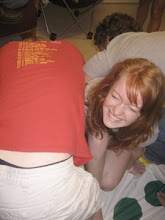Off-Campus
For my off-campus activity, I went to a healing workshop in Round Rock, I have been to multiple different types of meditation practices, and yoga-meditative workshops, but never anything involving healing. To be perfectly honest, it was a bit outside my preferences. It was a little more new-age-y than I’m used to and feel comfortable doing with enthusiasm. With that said, the meditation part was incredibly interesting and rewarding as it usually is. I did find though that my meditation patience was far less than it has been in the past; I think that in part, this is due to a stressful, but fun, year of change and growth. My life has not as of late held the time for extended periods of peace and serenity. In a way, I’ve really enjoyed the more hectic pace my life has been moving at, but at the same time, I do miss being able to sit in a meditation room for extended periods of time, and find that balance that has been missing lately. The one part of the healing workshop that I found particularly cheesy was the healing sessions where we all stood up around some people that were suffering from various ailments, and tried to heal them with our positive energy. I guess I’ve become a little to cynical to believe in the power of thoughts over medical care; I do believe positivity can greatly affect someone’s health but I think that it is more focused on the positive nature of the individual, rather than through healers.
On-campus
I attended a lecture held by the political science department, featuring political scientist Jack Goldstone. As a poli sci major, I found his talk incredibly enlightening and super relevant to the work I’m doing in all my classes, but most directly to my International Security class. The speech was focused around Democracies around the world, state stability, and a variety of other statistical measurements of the state. It was exciting to see the ‘scientist’ part of political scientist because most undergraduate political science work is focused on the general concepts rather than information, statistical findings, and subsequent political predictions. His talk focused around an index that he had developed with some of his colleagues which measured various factors of states to determine state stability, democracy measures, and a variety of other aspects of the state which allow him and others to draw conclusions and highlight patterns. One of the most interesting patterns that they highlighted was that since the end of the Cold War, intrastate wars (wars that happen within states, i.e. civil wars) have dramatically increased; this is due to the lack of the superpower control of their respective spheres. It was interesting that the overarching threat of a huge conflict kept in check a multitude of smaller conflict.

No comments:
Post a Comment